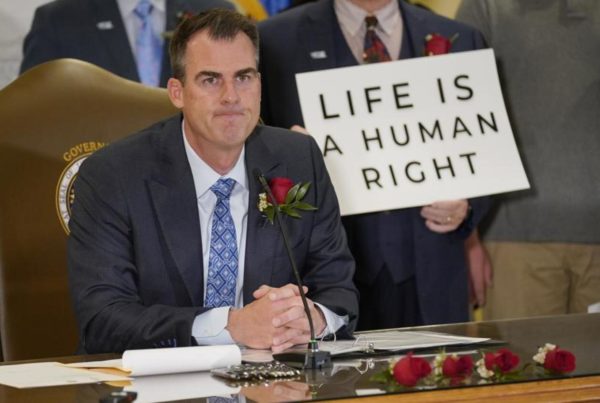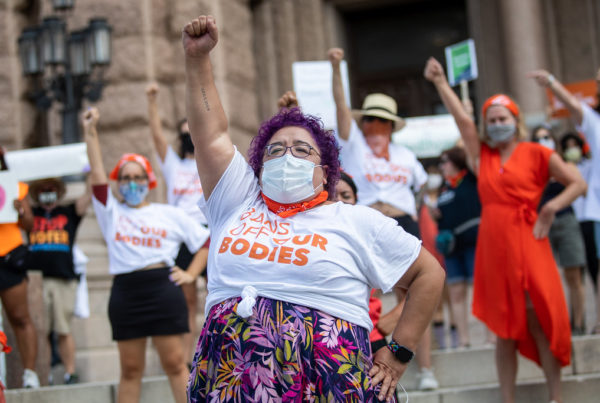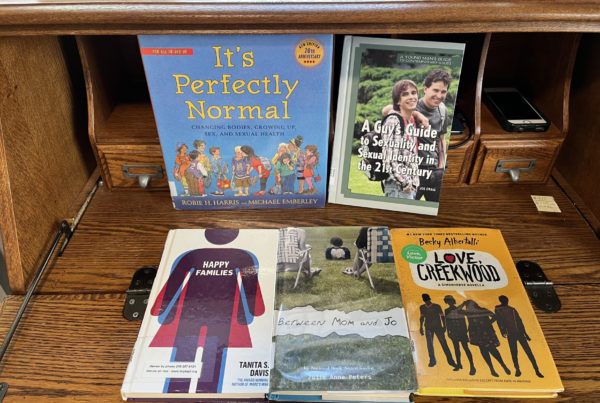If it becomes the official opinion, the recently leaked draft of a U.S. Supreme Court opinion to overturn Roe v. Wade could have legal ripple effects beyond abortion rights.
Stephen Vladeck, the Charles Alan Wright Chair in Federal Courts at the University of Texas School of Law, tells Texas Standard that if this draft becomes the official opinion, it could open the door to challenges to other decisions, including marriage for same-sex couples. Listen to the interview with Vladeck in the audio player above or read the transcript below.
This interview has been edited lightly for clarity.
Texas Standard: Can you explain why Justice Samuel Alito, who wrote the draft, argues Roe v. Wade should be overturned?
Stephen Vladeck: The basic argument is that the underpinnings to Roe – the right to privacy, the notion that the Constitution protects from government intervention, a whole range of private, personal choices – the basic critique is that that’s not deeply rooted in the Constitution. That when the Supreme Court first articulated it in Griswold v. Connecticut in 1965 – a case about contraception – and when it expanded it to abortion in 1973 and Roe, that the court was basically creating a new right that did not previously exist, and that that’s something the court shouldn’t do.
And so I think that’s why you hear people like President Biden openly worry, and not just about what this means for abortion, but for a host of other protections that the Supreme Court has identified.
Some people might be surprised to think of the notion of privacy as kind of an exotic legal idea. But could you explain where the idea of privacy comes from?
The Griswold opinion in 1965 basically stands for the idea that a bunch of textual references in the Constitution demarcate the border of what we might call the “zone of privacy,” the area past which we don’t let the government go. We don’t let the government control our medical choices, we don’t let the government control our educational choices. And part of what’s tricky here is that a lot of the area that Griswold says is protected by this on the privacy is stuff we would never think the government would try to regulate. And so we don’t have cases saying the government can’t do this because the government would never do this.
But then we get to the border cases, the marginal cases, where we have government intervention: in Griswold, it was about restricting access to contraception; in Roe it was about restricting access to abortion. In other cases, it was about restricting what language your children could be educated in. And in all of those contexts, the Supreme Court said, “No. There’s a point past which the state really can’t go.” That’s the hook that Justice Alito’s draft opinion really is criticizing. And it’s why when he says this draft opinion is only about abortion, that might be true, in fact, but it’s not really true in theory.
What other rights or cases or laws could possibly be in jeopardy as a result of this draft opinion?
Keep in mind that taking away these rights doesn’t mean that all of a sudden these things become inaccessible. It just means that the state can regulate them. So, for example, the next step was for the court to repudiate Griswold and to allow states to regulate access to contraception. That doesn’t mean the states would overnight – of course, Texas might be especially aggressive and try to take advantage of that [with abortion] – but we could see an assault on the protections of contraception. We could see states try to regulate more directly our personal medical decisions.
And so I think what’s tricky here is that a decision along the lines of Justice Alito’s draft opinion would not, overnight, mean that all of these things were no longer available and that all of these things were no longer protected. But it would, I think, open the door to creative, if not cynical, attempts by states that wanted to really attempt new forms of regulation and new forms of intrusion into our private lives.
And I think the last piece of that is the concern that that would also spill over into some of the more recent constitutional discussions of equality for same-sex couples and same-sex marriage, and whether that, too, might be on the chopping block. The draft opinion tries really hard to say, “No, we’re not focused on any of those things.” But the analysis it would adopt, if this is what we get from the Supreme Court, sure seems like it would open the door to those kinds of cases as well.
This conversation is based on information we have gleaned from a draft opinion. The official document will be released later this year. Do you see any wiggle room, any reason to think that anything could change regarding this opinion between now and then?
It’s distinctly possible. Keep in mind that it’s not just that this is a draft opinion, but it’s one that was dated Feb. 10. So it’s possible that it’s already changed a fair amount. But I think the reality is that we tend not to see seismic shifts in the analysis of Supreme Court opinions even when we’re eventually able to see the drafts years later. And I think one of the ironies of the leak is that it will probably make it that much harder for this opinion to change that much, because now everyone knows that there’s a draft against which the final result will be judged.
So, you know, never say never; nothing is final until the Supreme Court really does hand down its ultimate decision. But if this is the direction the court goes in, and it’s hard to believe it won’t be, then I think folks are right to worry that as bad a ruling as this is for abortion access in the United States, it has far more ominous and far more sweeping implications for a whole bunch of other rights that we have come to take for granted.
















